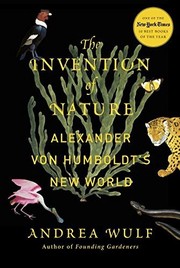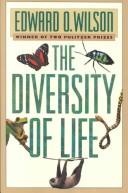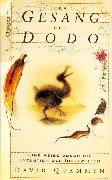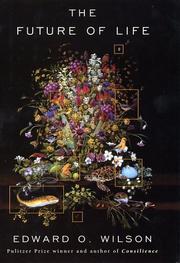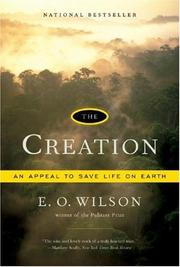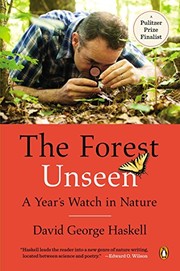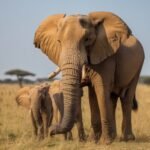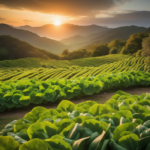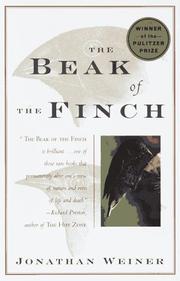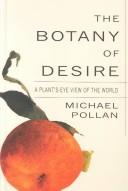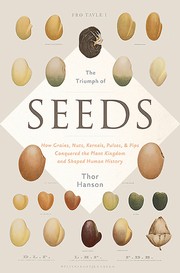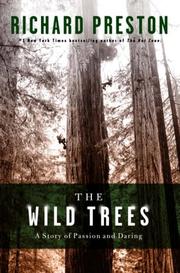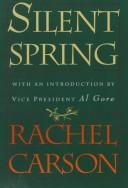Are you passionate about the environment and the variety of life on Earth? If so, you’ll love diving into the world of biodiversity through these 20 captivating books. Whether you’re an avid reader, a student, or a professional in the field, there’s a book on biodiversity for everyone. From exploring the intricate ecosystems of rainforests to understanding the impact of human activity on wildlife, these biodiversity books offer a wealth of knowledge and inspiration. Get ready to expand your understanding of the natural world and discover new perspectives on conservation and sustainability. Let’s embark on a journey through the pages of the 20 best books about biodiversity!
Contents
- 1 20 Best Biodiversity Books
- 2 The Sixth Extinction: An Unnatural History
- 3 The Hidden Life of Trees: What They Feel, How They Communicate
- 4 The Invention of Nature: Alexander von Humboldt’s New World
- 5 The Diversity of Life
- 6 The Song of the Dodo: Island Biogeography in an Age of Extinctions
- 7 The Future of Life
- 8 The Serengeti Rules: The Quest to Discover How Life Works and Why It Matters
- 9 The Creation: An Appeal to Save Life on Earth
- 10 The Forest Unseen: A Year’s Watch in Nature
- 11 The Origin of Species
- 12 The Beak of the Finch: A Story of Evolution in Our Time
- 13 The Hidden Half of Nature: The Microbial Roots of Life and Health
- 14 The Soul of an Octopus: A Surprising Exploration into the Wonder of Consciousness
- 15 The Botany of Desire: A Plant’s-Eye View of the World
- 16 The Triumph of Seeds: How Grains, Nuts, Kernels, Pulses, and Pips Conquered the Plant Kingdom and Shaped Human History
- 17 The Shark’s Paintbrush: Biomimicry and How Nature Is Inspiring Innovation
- 18 The Wild Trees: A Story of Passion and Daring
- 19 Silent Spring
- 20 The Moth Snowstorm: Nature and Joy
- 21 The Last Giants: The Rise and Fall of the African Elephant
- 22 Final Thoughts on Best Biodiversity Books
- 23
20 Best Biodiversity Books
The Sixth Extinction: An Unnatural History
by Elizabeth Kolbert
The Sixth Extinction: An Unnatural History by Elizabeth Kolbert is a captivating and thought-provoking book on biodiversity and the devastating impact of human activity on the planet. Kolbert takes readers on a journey through history, exploring the five previous mass extinctions and the role of human beings in the current sixth extinction event. Through a combination of scientific research and engaging storytelling, she highlights the interconnectedness of all living organisms and the delicate balance of the natural world. The book delves into the effects of climate change, habitat destruction, and the spread of invasive species, shedding light on the alarming rate at which species are disappearing.
With a compelling narrative and a sense of urgency, Kolbert presents a sobering but essential message about the future of life on Earth. The Sixth Extinction is a must-read for anyone interested in the environment, conservation, and the preservation of our planet’s rich biodiversity.
The Hidden Life of Trees: What They Feel, How They Communicate
by Peter Wohlleben
The Hidden Life of Trees: What They Feel, How They Communicate by Peter Wohlleben is a fascinating exploration of the intricate and interconnected world of trees. In this biodiverse book, Wohlleben reveals the remarkable ways in which trees communicate, cooperate, and care for each other within their forest communities. Through his engaging storytelling, readers will discover the complex network of roots and fungi through which trees share nutrients and information, and the ways in which they support and protect each other.
Wohlleben’s insights into the hidden lives of trees offer a new perspective on the natural world, highlighting the rich biodiversity of forests and the importance of preserving and nurturing these ecosystems. Whether you’re a nature enthusiast or simply curious about the wonders of the natural world, this book provides a captivating journey into the interconnectedness and resilience of trees, ultimately deepening our understanding and appreciation of the biodiversity that sustains life on our planet.
The Invention of Nature: Alexander von Humboldt’s New World
by Andrea Wulf
The Invention of Nature: Alexander von Humboldt’s New World by Andrea Wulf is a captivating exploration of the life and legacy of the visionary naturalist and explorer, Alexander von Humboldt. This compelling biography delves into Humboldt’s groundbreaking discoveries and revolutionary ideas that shaped our modern understanding of the natural world. Wulf skillfully weaves together historical narrative and scientific insight to paint a vivid portrait of a man whose influence on the fields of ecology, geology, and conservation is still felt today.
Wulf’s narrative takes readers on a journey through Humboldt’s expeditions across South America and his encounters with the diverse ecosystems and species that inspired his pioneering work. The book on biodiversity captures the essence of Humboldt’s holistic approach to studying nature and his recognition of the interconnectedness of all living things. Through rich prose and meticulous research, Wulf brings to life the extraordinary adventures and profound insights of a man whose passion for discovery and love for the natural world continue to inspire environmentalists and scientists today.
The Diversity of Life
by Edward O. Wilson
The Diversity of Life by Edward O. Wilson is a fascinating and insightful book on biodiversity. In this thought-provoking work, Wilson explores the incredible variety of life on Earth, from the smallest microorganisms to the largest mammals, and delves into the intricate and interconnected web of life that sustains our planet. With his expertise as a renowned biologist, Wilson takes readers on a journey through the rich tapestry of ecosystems and species, shedding light on the importance of biodiversity for the health and balance of our world.
Through compelling storytelling and scientific expertise, Wilson reveals the beauty and complexity of the natural world while also highlighting the urgent need to protect and preserve it. This book about biodiversity serves as a call to action for conservation efforts and emphasizes the vital role that each species plays in the intricate web of life. The Diversity of Life is a must-read for anyone interested in the wonders of the natural world and the importance of preserving its biodiversity.
The Song of the Dodo: Island Biogeography in an Age of Extinctions
by David Quammen
The Song of the Dodo is a captivating book on biodiversity that delves into the world of island biogeography in the context of modern extinctions. David Quammen takes readers on a fascinating journey to explore the intricate relationships between species and their habitats, shedding light on the fragility of our planet’s ecosystems. Through vivid storytelling and compelling scientific research, Quammen uncovers the intricate patterns of evolution and extinction on isolated islands, ultimately revealing the broader implications for global biodiversity.
This biodiversity book is a thought-provoking exploration of the challenges facing our natural world, offering a compelling perspective on the interconnectedness of life and the urgent need for conservation efforts. With a blend of adventure, history, and scientific discovery, The Song of the Dodo is a must-read for anyone passionate about the environment and the preservation of our planet’s diverse and irreplaceable ecosystems.
The Future of Life
by Edward O. Wilson
The Future of Life by Edward O. Wilson is an eye-opening exploration of the urgent need to protect and preserve the Earth’s rich and diverse ecosystems. In this compelling book on biodiversity, Wilson, a renowned biologist, delves into the devastating impact of human activity on the planet’s delicate balance of life. He emphasizes the critical importance of biodiversity, the variety of life on Earth, and warns of the irreversible consequences of species extinction.
Wilson’s passionate plea for the conservation of the Earth’s natural wonders is both informative and thought-provoking. Through vivid descriptions and compelling arguments, he presents a compelling case for the preservation of our planet’s biological diversity, making this book about biodiversity a must-read for anyone concerned about the future of life on Earth.
The Future of Life serves as a wake-up call, urging readers to take action and become stewards of the environment. Wilson’s eloquent prose and deep reverence for the natural world make this biodiversity book a powerful and inspiring call to arms for conservation and sustainability.
The Serengeti Rules: The Quest to Discover How Life Works and Why It Matters
by Sean B. Carroll
The Serengeti Rules is a captivating book on biodiversity that takes readers on a journey to uncover the fundamental principles that govern life on Earth. Renowned biologist Sean B. Carroll explores the work of a group of scientists who made groundbreaking discoveries about the delicate balance of nature. Through their research in different ecosystems, from the Serengeti to the oceans, these scientists have uncovered the ‘rules’ that dictate the abundance and diversity of species. Carroll’s narrative weaves together the stories of these scientists, their discoveries, and the impact of their findings on our understanding of biodiversity.
This biodiversity book delves into the intricate web of life, revealing the interconnectedness of species and the delicate mechanisms that maintain ecological harmony. Carroll’s compelling storytelling and insightful analysis shed light on the importance of biodiversity and the consequences of disrupting the natural balance. The Serengeti Rules offers a thought-provoking exploration of how life works and why it matters, making it an essential read for anyone interested in the wonders of the natural world.
The Creation: An Appeal to Save Life on Earth
by Edward O. Wilson
The Creation: An Appeal to Save Life on Earth by Edward O. Wilson is a compelling book on biodiversity that passionately advocates for the preservation of our planet’s rich and diverse ecosystems. Wilson, a renowned biologist, combines scientific expertise with a deep reverence for the natural world as he makes a powerful case for the urgent need to protect Earth’s biodiversity. Through vivid storytelling and insightful analysis, he highlights the interconnectedness of all life forms and the critical role that each species plays in maintaining the delicate balance of our planet’s ecosystems. Wilson’s eloquent plea for conservation is a wake-up call to humanity, urging us to recognize the value of all living beings and to take action to prevent the irreversible loss of biodiversity. The Creation is a thought-provoking and timely book about biodiversity that inspires readers to appreciate the beauty of nature and to join the global effort to safeguard life on Earth.
The Forest Unseen: A Year’s Watch in Nature
by David George Haskell
The Forest Unseen: A Year’s Watch in Nature by David George Haskell is a captivating exploration of the intricate biodiversity within a small patch of old-growth forest. Through the lens of a tiny one-square-meter plot, the author takes readers on a journey of discovery, observing the interactions and changes that occur within this seemingly small space throughout the seasons.
Haskell’s keen observations and lyrical prose bring to life the myriad of life forms that coexist within the forest, from plants and insects to birds and mammals. As he delves into the interconnectedness of the natural world, he also weaves in scientific insights and philosophical reflections, making this book about biodiversity a compelling blend of science and storytelling.
With its rich descriptions and thought-provoking insights, The Forest Unseen offers readers a deeper understanding of the complexities of the natural world and the importance of preserving biodiversity. It is a must-read for anyone interested in gaining a deeper appreciation for the wonders of the natural world.
The Origin of Species
by Charles Darwin
The Origin of Species by Charles Darwin is a groundbreaking book on biodiversity that revolutionized our understanding of the natural world. Published in 1859, Darwin’s work introduced the concept of evolution through natural selection, challenging prevailing beliefs about the origins of species. In this influential book about biodiversity, Darwin presents evidence from various scientific disciplines to support his theory, including observations from his famous voyage on the HMS Beagle.
Darwin’s writing is engaging and accessible, making complex scientific concepts understandable to a wide audience. He discusses the intricate web of life on Earth, highlighting the interconnectedness of different species and the adaptations that enable them to thrive in their environments. The Origin of Species sparked widespread debate and controversy, but its impact on the fields of biology and ecology cannot be overstated. This biodiversity book continues to shape our understanding of the natural world and remains essential reading for anyone interested in the diversity of life on our planet.
The Beak of the Finch: A Story of Evolution in Our Time
by Jonathan Weiner
The Beak of the Finch: A Story of Evolution in Our Time by Jonathan Weiner is a captivating book about biodiversity and the process of evolution. The book follows the groundbreaking research of Peter and Rosemary Grant, who studied the finches of the Galápagos Islands for over 20 years. Through their meticulous observations, the Grants were able to witness natural selection in action, as the finches’ beak shapes and sizes changed in response to environmental pressures.
Weiner’s narrative weaves together scientific discovery, personal stories, and the beauty of the natural world, making the complex concepts of evolution accessible and engaging for readers. The Beak of the Finch offers a unique perspective on the study of biodiversity, showing how small changes in a population can have far-reaching effects on a species’ survival.
This biodiversity book provides a compelling look at the interplay between genetics, environment, and adaptation, and it is a must-read for anyone interested in the wonders of evolution and the natural world.
The Hidden Half of Nature: The Microbial Roots of Life and Health
by David R. Montgomery and Anne Biklé
The Hidden Half of Nature: The Microbial Roots of Life and Health is a captivating exploration of the intricate and vital relationship between humans, plants, and the microbial world. Written by David R. Montgomery, a geologist, and Anne Biklé, a biologist, this book on biodiversity takes readers on a journey through the hidden world beneath our feet, showcasing the profound impact that microorganisms have on our health, agriculture, and environment.
Through compelling storytelling and scientific insights, the authors reveal the interconnectedness of all living things and the pivotal role that biodiversity plays in sustaining life on Earth. From the soil in our gardens to the microbes in our guts, The Hidden Half of Nature uncovers the fascinating ways in which microbial communities shape our world.
This thought-provoking book about biodiversity will leave readers with a newfound appreciation for the hidden half of nature and a deeper understanding of the complex web of life that sustains us all.
The Soul of an Octopus: A Surprising Exploration into the Wonder of Consciousness
by Sy Montgomery
The Soul of an Octopus: A Surprising Exploration into the Wonder of Consciousness by Sy Montgomery is a captivating book about the extraordinary intelligence and emotional depth of octopuses. Through her immersive experiences at the New England Aquarium, Montgomery delves into the fascinating world of these enigmatic creatures, revealing their complex behaviors and intricate relationships with humans.
With lyrical prose and vivid storytelling, the author takes readers on a journey through the mysterious realm of the octopus, offering insights into their remarkable problem-solving abilities, playful nature, and profound connections with the natural world. The book also delves into the broader theme of biodiversity, highlighting the importance of understanding and preserving the diverse forms of life that populate our planet.
The Soul of an Octopus is a mesmerizing blend of science, memoir, and adventure, offering a thought-provoking exploration into the depths of consciousness and the interconnectedness of all living beings. It is a must-read for anyone interested in the natural world and the wonders of biodiversity.
The Botany of Desire: A Plant’s-Eye View of the World
by Michael Pollan
The Botany of Desire: A Plant’s-Eye View of the World by Michael Pollan is a captivating exploration of the intricate relationship between humans and plants. In this thought-provoking and eye-opening book on biodiversity, Pollan delves into the co-evolution of plants and humans, focusing on four specific plants: the apple, the tulip, cannabis, and the potato. Through these case studies, Pollan examines how each plant has shaped human desires and behaviors, and how humans have in turn influenced the evolution and spread of these plants.
By exploring the interconnectedness of plants and humans, Pollan offers a fresh perspective on the concept of biodiversity, emphasizing the ways in which plants have not only adapted to human desires, but have also influenced human culture, economics, and even politics. Through vivid storytelling and insightful analysis, Pollan invites readers to reconsider their relationship with the natural world and to recognize the profound impact that plants have on our lives. The Botany of Desire is a must-read for anyone interested in a deeper understanding of the complex web of life on Earth.
The Triumph of Seeds: How Grains, Nuts, Kernels, Pulses, and Pips Conquered the Plant Kingdom and Shaped Human History
by Thor Hanson
The Triumph of Seeds by Thor Hanson is a fascinating book on biodiversity that explores the incredible world of plant reproduction and its impact on human history. In this engaging and informative read, Hanson delves into the evolutionary strategies of seeds and the vital roles they play in the survival and proliferation of plant species.
From grains to nuts, kernels, pulses, and pips, Hanson takes readers on a captivating journey through the diverse forms and functions of seeds, shedding light on their remarkable adaptability and resilience. Through captivating storytelling and insightful research, he demonstrates how seeds have shaped human civilization, from the development of agriculture to the global spread of plants and the rise of modern food systems.
With a blend of science, history, and personal anecdotes, The Triumph of Seeds offers a compelling look at the intricate relationships between plants and humans, highlighting the profound impact of seeds on biodiversity and the interconnectedness of life on Earth. This biodiversity book will leave readers with a newfound appreciation for the often overlooked but essential role of seeds in shaping the natural world and human culture.
The Shark’s Paintbrush: Biomimicry and How Nature Is Inspiring Innovation
by Jay Harman
The Shark’s Paintbrush: Biomimicry and How Nature Is Inspiring Innovation by Jay Harman is a fascinating exploration of the natural world and its potential to inspire groundbreaking innovation. In this captivating book, Harman delves into the concept of biomimicry, which involves drawing inspiration from nature to solve human challenges and create sustainable solutions.
Harman takes readers on a journey through the diverse and ingenious ways in which organisms have adapted and evolved to thrive in their environments. From the way a shark’s skin reduces drag to the intricate design of a leaf that maximizes sunlight absorption, the book showcases the incredible biodiversity of life on Earth and the valuable lessons it holds for human technology and design.
Through compelling storytelling and insightful analysis, The Shark’s Paintbrush demonstrates how biodiversity is a wellspring of innovation and a source of endless inspiration for engineers, architects, and inventors. This book about biodiversity is a must-read for anyone interested in the intersection of nature and technology, and the potential for a more sustainable and harmonious future.
The Wild Trees: A Story of Passion and Daring
by Richard Preston
The Wild Trees: A Story of Passion and Daring by Richard Preston is a captivating exploration of the towering redwood trees of the Pacific Northwest and the dedicated scientists and adventurers who study them. This gripping non-fiction narrative takes readers into the heart of the ancient and awe-inspiring redwood forests, where the author introduces us to a group of eccentric and passionate individuals who are determined to climb, study, and protect these magnificent trees.
Preston’s vivid storytelling and meticulous research bring to life the astonishing biodiversity of the redwood ecosystem and the unique challenges faced by those who seek to understand and conserve it. Through heart-stopping tales of tree-climbing expeditions and groundbreaking scientific discoveries, The Wild Trees offers a thrilling and enlightening glimpse into the hidden world of the tallest living organisms on Earth. This book about biodiversity will leave readers with a deep appreciation for the wild and wondrous beauty of these ancient giants and the importance of preserving their rich and diverse ecosystem.
Silent Spring
by Rachel Carson
Silent Spring, written by Rachel Carson, is a groundbreaking book on biodiversity and the environment. Published in 1962, this influential work exposed the harmful effects of pesticides on the environment and brought attention to the widespread destruction of wildlife and ecosystems. Carson’s in-depth research and powerful writing style captivated readers and sparked a global environmental movement.
The book is a compelling call to action, warning about the devastating impact of human activities on the natural world. Carson’s vivid descriptions of the interconnectedness of all living creatures and the delicate balance of ecosystems resonated with readers, leading to a heightened awareness of the importance of preserving biodiversity.
Silent Spring is a timeless and essential read for anyone interested in environmental conservation and the protection of our planet. Its impact on the environmental movement cannot be overstated, and it continues to inspire and inform discussions about the preservation of our natural world.
The Moth Snowstorm: Nature and Joy
by Michael McCarthy
The Moth Snowstorm: Nature and Joy by Michael McCarthy is a captivating exploration of the profound connection between humans and the natural world. In this poignant and beautifully written book on biodiversity, McCarthy shares his personal experiences with nature and makes a compelling case for the importance of preserving the earth’s diverse ecosystems. Through vivid storytelling and insightful observations, he highlights the immense joy and wonder that can be found in the natural world, and the devastating impact of the loss of biodiversity on our planet.
McCarthy’s eloquent prose and passionate advocacy for the preservation of our natural world make The Moth Snowstorm a must-read for anyone interested in environmental conservation and the beauty of the natural world. This book about biodiversity is a powerful reminder of the interconnectedness of all living things and the urgent need to protect and celebrate the incredible diversity of life on Earth.
The Last Giants: The Rise and Fall of the African Elephant
by Levison Wood
The Last Giants: The Rise and Fall of the African Elephant by Levison Wood is a captivating exploration of the majestic creatures that roam the African plains. In this compelling book on biodiversity, Wood takes readers on a journey through the African continent, delving into the complex relationship between humans and elephants. Through his immersive storytelling, he sheds light on the challenges facing these iconic animals, including poaching, habitat loss, and human-wildlife conflict. The book about biodiversity also highlights the important role that elephants play in maintaining the delicate balance of ecosystems and the urgent need for their conservation.
Wood’s firsthand experiences and in-depth research provide a thought-provoking look at the plight of the African elephant, making this biodiversity book a must-read for anyone passionate about wildlife conservation and the preservation of our planet’s natural heritage. The Last Giants is a powerful call to action, reminding us of the vital importance of protecting these magnificent creatures for future generations.
Final Thoughts on Best Biodiversity Books
Exploring the 20 best books about Biodiversity is a fascinating journey into the intricate web of life on our planet. Each book offers a unique perspective on the importance of biodiversity and the urgent need for its conservation. Whether you’re interested in ecology, conservation, or simply want to deepen your understanding of the natural world, these books provide valuable insights and inspiration. From scientific studies to captivating narratives, the diversity of perspectives presented in these books will undoubtedly leave a lasting impression. Dive into these captivating reads and embark on a journey to discover the wonders of our planet’s biodiversity.
Which book about Biodiversity is best?
The best book on Biodiversity can vary with personal preference, but three widely recommended titles are:
- The Sixth Extinction: An Unnatural History by Elizabeth Kolbert,
- The Hidden Life of Trees: What They Feel, How They Communicate by Peter Wohlleben,
- The Invention of Nature: Alexander von Humboldt’s New World by Andrea Wulf.
Each offers valuable insights and could be a great starting point.
What are the best books to learn about Biodiversity?
For those looking to learn about Biodiversity, there is a wealth of literature that can provide a comprehensive understanding of the subject. Some of the most highly recommended books include:
- The Sixth Extinction: An Unnatural History by Elizabeth Kolbert,
- The Hidden Life of Trees: What They Feel, How They Communicate by Peter Wohlleben,
- The Invention of Nature: Alexander von Humboldt’s New World by Andrea Wulf,
- The Diversity of Life by Edward O. Wilson,
- The Song of the Dodo: Island Biogeography in an Age of Extinctions by David Quammen,
- The Future of Life by Edward O. Wilson,
- The Serengeti Rules: The Quest to Discover How Life Works and Why It Matters by Sean B. Carroll,
- The Creation: An Appeal to Save Life on Earth by Edward O. Wilson,
- The Forest Unseen: A Year’s Watch in Nature by David George Haskell,
- The Origin of Species by Charles Darwin
These books offer a range of perspectives on Biodiversity, covering various aspects and approaches to the subject.
What are the best books about Biodiversity?
The best books about Biodiversity are:
- The Sixth Extinction: An Unnatural History by Elizabeth Kolbert,
- The Hidden Life of Trees: What They Feel, How They Communicate by Peter Wohlleben,
- The Beak of the Finch: A Story of Evolution in Our Time by Jonathan Weiner,
- The Hidden Half of Nature: The Microbial Roots of Life and Health by David R. Montgomery and Anne Biklé,
- The Creation: An Appeal to Save Life on Earth by Edward O. Wilson,
- The Future of Life by Edward O. Wilson.
Each offers unique insights into the subject. While these books about Biodiversity are highly regarded, it’s important to note that any list of ‘best’ books is subjective and reflects a range of opinions.
What are the best Biodiversity books of all time?
Choosing the best Biodiversity books of all time can vary depending on who you ask, but five titles that are often celebrated include
- The Sixth Extinction: An Unnatural History by Elizabeth Kolbert,
- The Hidden Life of Trees: What They Feel, How They Communicate by Peter Wohlleben,
- The Song of the Dodo: Island Biogeography in an Age of Extinctions by David Quammen,
- The Creation: An Appeal to Save Life on Earth by Edward O. Wilson,
- and The Beak of the Finch: A Story of Evolution in Our Time by Jonathan Weiner.
Each of these books has made a significant impact in the field of Biodiversity and continues to be influential today.



